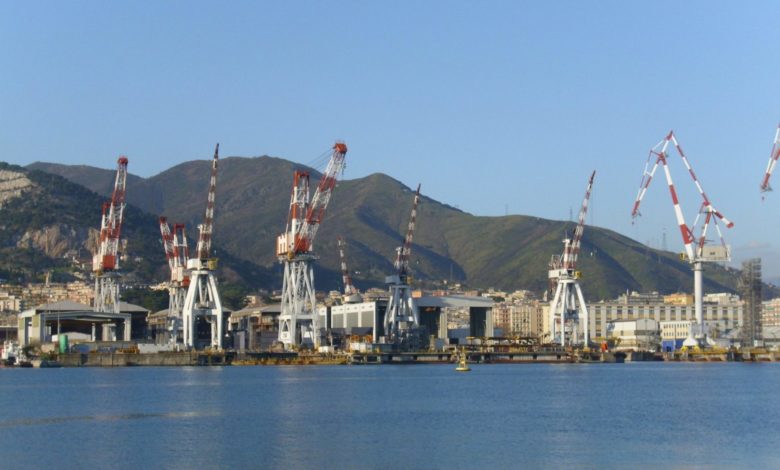The high-tech road to survival

Italian yards have to pursue niches amid intense competition from East Asia.
In the last decade shipyards in Italy have progressively seen their market share erode. Production and capacity in the merchant ship business has been on the slide. From 2000 onwards some of the facilities traditionally involved in building cargo vessels went bankrupt or converted their production to cruiseships, ferries or yachts.
A glance at the statistics published by Assonave, the Italian shipbuilding association, shows that at the beginning of 2015 Italian shipyards had a total orderbook of 855,000 cgt that was worth roughly €3.75bn ($4.1bn), a 67% and 74% increase respectively if compared to the previous year.
Most of this work refers to the new contracts obtained by Fincantieri from Carnival Corporation for cruise vessels, while almost all the other private companies involved in constructing offshore vessels, tugs and passenger ships suffered the ill winds that the crisis in shipping has wrought.
Competition with Asian players is obviously not sustainable and that’s the reason why Italy’s shipbuilding industry focused on technological innovation to survive in the current market, while asking politicians to streamline legislation and bureaucracy.
Cesario Mondelli, chairman of the Italian private shipyards association, Ancanap, recently said: “Private shipyards in Italy are ready and committed to the market but we ask to play fairly in terms of global competition, being supported by the national government through adequate nancial instruments and insurance coverage on export credits.”
Ancanap’s head added: “The global crisis drastically hurt the sector because of nonsense strategies in the Far East, resulting in shipyards’ capacity oversupply which depressed the market worldwide. Nevertheless many Italian shipyards succeeded to overcome the crisis and can now target the future with no worry and more confidence.”
Apart from Fincantieri, which nailed a number of lucrative cruiseships orders last year, other private companies survived just focusing on quality and specialisation, particularly turning to specific market segments which demand technology. Some clear examples are the $250m passenger ship soon to be delivered by T.Mariotti yard to a company backed by the Sultan of Oman, or the new order for the first LNG propelled ferry for the Mediterranean Sea to be ordered soon by Caronte & Tourist to Rosetti Marino.
By and large some sort of public contributions for the shipyards recently came from Italy’s government in the wake of 2015’s Stability Law. A €5m ($5.5m) direct contribution staggered over a 20-year period to fund innovative product or process projects in the shipping sector has been granted by Rome. Confitarma, the Italian shipowners association, has asked the government if they can access these new resources too for owners who develop innovative management and organisation projects.
Apart from shipbuilding activity, Italy has a very old and good tradition also in the repair business and local companies’ growth ambitions have been fulfilled of late with expansion taking place outside of the nation’s borders. This is particularly true for instance for Genova Industrie Navali, the holding company of the two biggest Genoa-based shipyards, San Giorgio del Porto and T. Mariotti, which are both part of the consortium that has won the tender for the management of Marseilles’s number 10 drydock, the largest in the Mediterranean that will be reopened later this year.
The lack of investment in facilities that are suited to the next generation of vessels also prompted Naples-based Palumbo group to acquire Malta Shipyard a few years ago. Malta Shipyard today can accommodate ships of up to 300,000 dwt and is well located in the heart of the Mediterranean, with access to ships en route from the Suez Canal to Gibraltar.
This article was first published in Splash’s Italian Market Report 2016, which launched last week. Readers can access the full magazine online for free by clicking here.
